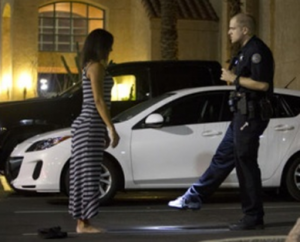Should I Take Field Sobriety Tests?

Any police officer trained to identify a drunk driving suspect is likely to seek information about alcohol consumption or drug usage from the person under investigation. Most people think that a sobriety test requested by a law enforcement officer has been scientifically proven to “detect” a person’s inebriation. This is completely false.
Well-trained impaired driving lawyers know that every one of the so-called field sobriety tests used by police are not scientifically correlated to how to calculate blood alcohol level of that driver. This is why you should refuse any sobriety test offered by an officer investigating you for drunken driving or drugged driving.
Which Field Sobriety Tests Should I Refuse?
The 3 standardized field sobriety tests include:
- The Horizontal Gaze Nystagmus (HGN)
- Walk and Turn (WAT)
- One Leg Stand (OLS)
The horizontal gaze nystagmus considers involuntary jerking of the eye as one rolls the eyes from side to side. The test is usually done by moving an object such as a pen around the eyes such that the eyeball will follow it. The head has to remain stationary in this action. The examiner, in this case the police officer, will look for signs that suggest impairment such as:
- The eye does not smoothly follow the object.
- The eye jerks distinctly at points of maximum elevation.
- The jerking starts at a 45 degree angle from the center.
Walk and Turn
Walk and Turn involves a nine-step walk from heels to toes, on a straight line, turn around on one foot and walk nine steps back. The examiner searches for intoxication evidence such as:
1. While listening to instructions the person cannot keep their balance.
2. He/she starts before the examiner is through giving instructions.
3. They halt in between the walk to regain balance.
4. They can’t execute the heel-to-toe.
5. They cannot walk in a straight line.
6. They have to use their arms to maintain balance.
7. They cannot do the turn properly.
8. They take an inaccurate number of steps.
One Leg Stand
A person is instructed to stand on one leg with the other about six inches off the ground. The person should then count to a given number or until they are told to stop. Impairment indicators would be things such as hopping, swaying, or using arms in order to achieve or maintain balance.
Among sobriety test deficiencies are the lack of norms on how various people within different age groups behave when sober. this guarantees admissibility in a court of law. A review of thousands of arrest videos showed that most police officers made mistakes while administering the test, but more often than not the arrest is made anyway.
Despite procedural mistakes on the officer’s part, sometimes the evidence still can be used against you in a court of law within some states.
Respectfully Refuse All Field Sobriety Tests
How you perform is subject to the opinion of the officer who arrested you. Therefore in videos where the clip did not capture the suspect walking, the officer’s testimony can be accepted as evidence in court. Refusing to take any of these tests is allowable and does not in any way affect one’s driving privileges. The best course of action is to politely refuse these exercises. Accepting to participate in these tests increases chances of arrest for drunk driving.
Should I Answer Sobriety Test Questions?
The deputy or state trooper asking you to perform knows that all roadside sobriety tests are optional and voluntary. However, you will not be told that you do not have to attempt a single sobriety “field test.” You can say NO, or ask to call a criminal defense attorney before doing any roadside agility exercises or eye tests, or answering any DUI sobriety test questions.
Before any field sobriety tests are sought by a policeman or police woman investigating a drunk driver, interrogation–that is not likely to require Miranda warnings–will be targeted to getting the DUI suspect to self- incriminate. If you admit drinking alcohol or admit using ANY drug–prescribed, illegal or over the counter–these words will be taken down for your police report, and used against you at court later. You are only required to give your correct name and your correct address.
If you are arrested for any offense, especially driving under the influence of alcohol or drugs, you need to seek immediate legal assistance from a skilled, experienced DWI defense lawyer. If this is your first experience with criminal law, do not think that you can handle this case by yourself. You need to have a criminal lawyer by your side. To win in the criminal justice system, you need to have a better lawyer than the prosecution.
When you seek to hire a private DUI defense or DWI defense attorney, ask questions about total number of criminal law TRIALS he or she has under his or her belt. Ask the criminal attorney if he or she has taken the 3-day standardized field sobriety test “practitioner” course. This is called the NHTSA field sobriety course, which is the same training a law enforcement officer is supposed to take.
The most highly trained criminal defense lawyer who specialize in driving while impaired cases have also taken the NHTSA SFST “instructor” course. He or she will also have completed training on how to measure blood alcohol level, as well as basic breathalyzer machine training. These forensic science training courses are basic training to be able to defend your driving while intoxicated prosecution.
In summary, if you have a DUI – DWI case pending, regardless of the BAC level claimed by police, and regardless of whether you attempted to take the field sobriety tests, you need to hire a capable, knowledgeable criminal defense lawyer for your DWI defense.
Call now and talk directly with a DUI attorney at (844) 832-6384 day or night. We will explain how field sobriety test evidence can be suppressed.
Further Reading
For more information on field sobriety tests, take a look at one of our articles detailing specific aspects of these DUI tests below:
- DUI Tests
- Field Sobriety Tests in the United States
- Field Sobriety Tests are Voluntary
- What Happens If I Refuse the DUI Tests?
- If I Don’t Take Field Sobriety Tests, Will I Lose My License?
- Are Field Sobriety Tests Reliable?
- Are Police Properly Trained On Field Sobriety Tests?
- Can Field Sobriety Test Errors Help Me?


